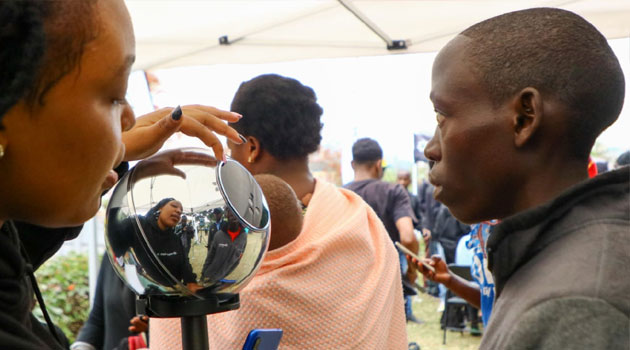"Faces for Crypto": Kenyan Court Rules Against Worldcoin’s Biometric Data Collection

Kenyans who turned up in droves to have their data harvested. Photo/file
By Gilbert Kimutai
Published on May 5, 2025
It started with long queues, stretching outside malls and tech hubs in Nairobi, Kisumu, and Mombasa. Young Kenyans, many fresh out of university or looking for work, stood in the sun waiting for their turn to peer into a silver orb in exchange for free cryptocurrency. The company behind it, Worldcoin, promised a bold new future: digital currency for everyone, identity secured on the blockchain.
But today, that promise was dealt a major blow.
In a landmark decision, the High Court of Kenya has ruled that Worldcoin’s collection of biometric data — including iris scans from thousands of Kenyans, was unconstitutional. The court found that the company failed to conduct a mandatory Data Protection Impact Assessment and had not registered as a data processor under Kenyan law.
The judgment comes after months of public outcry and scrutiny from data privacy advocates who warned that Kenyans had traded their most sensitive personal data without fully understanding the consequences.
“The people were lured with the hope of financial inclusion but left vulnerable,” said a Nairobi-based digital rights lawyer who welcomed the court’s decision.
When Worldcoin launched in Kenya in 2023, the response was overwhelming. Kenyans came out in droves, drawn by the promise of free tokens and the excitement of being early adopters of cutting-edge technology. The shiny, sci-fi-like “orb” — used to scan people’s irises — became a familiar sight in malls and universities. But behind the buzz, critics questioned whether the company was operating transparently, and whether users really understood what they were giving up in exchange for a few dollars’ worth of cryptocurrency.
The court has now ordered Worldcoin to delete all biometric data collected from Kenyans, under the supervision of the Office of the Data Protection Commissioner (ODPC). It also barred the company from further processing any data without conducting proper assessments or obtaining valid, informed consent.
For many Kenyans who lined up to scan their irises, the ruling is a wake-up call about the risks of trading personal data for digital rewards — and a strong message that even tech giants must play by the rules regarding protecting human rights.
Comments Below